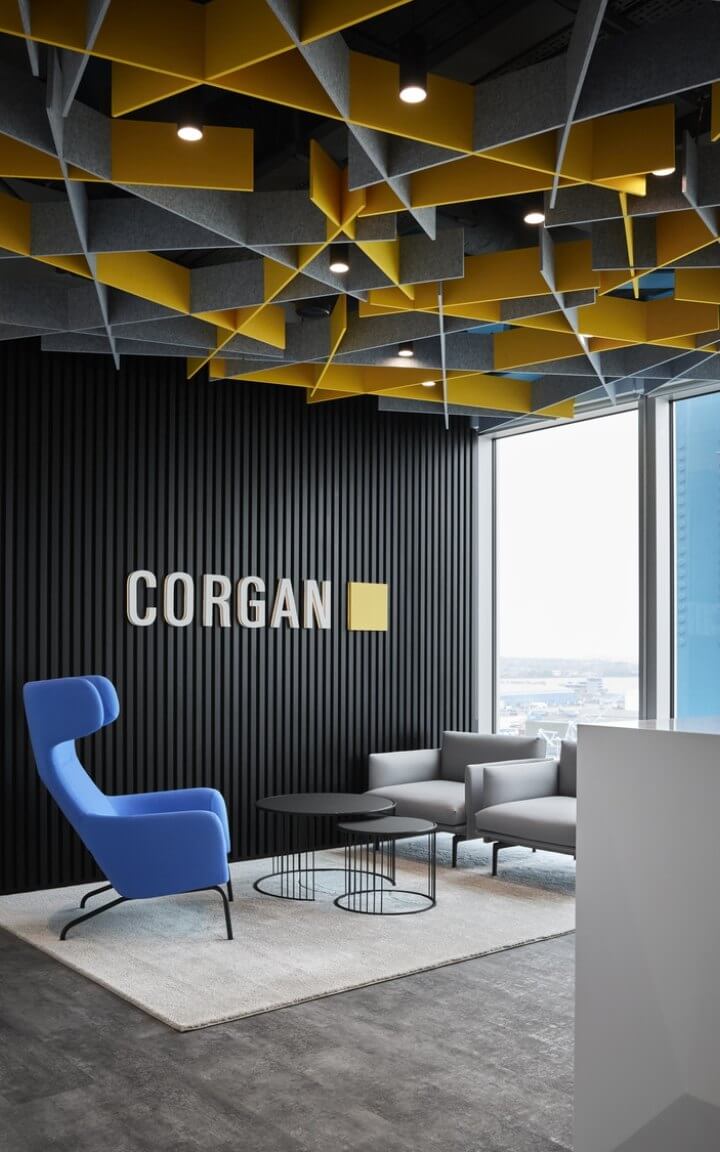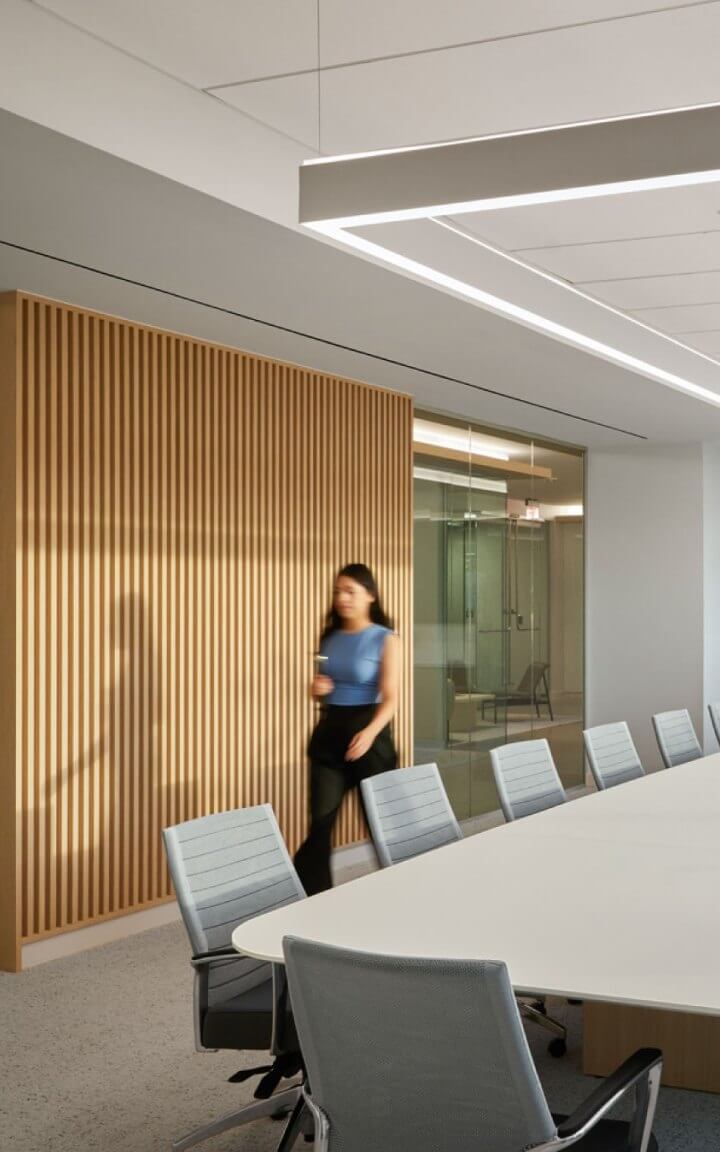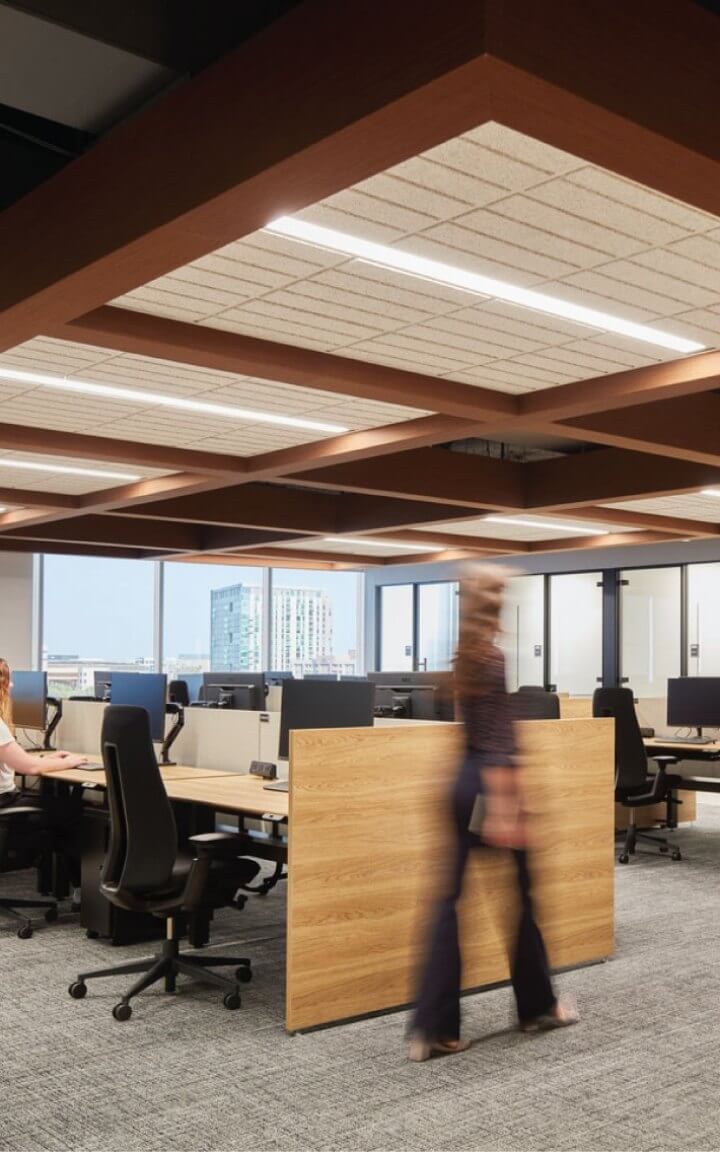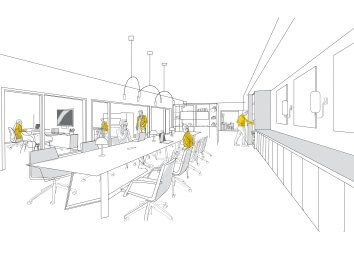Expectations of Legal Workplaces: Flexibility, Mentorship & Amenities
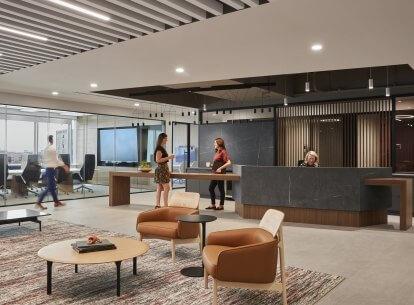
The world of work has changed a lot over the past few years, and although they are changing more slowly, law offices aren’t immune to this progress. Recently, we’ve had many clients ask us what decisions other firms are making and what to expect from the future workforce. To find out, we conducted a pulse check study to understand what upcoming and recent graduates are expecting of firms they’d like to work at and learn more about the decision making of tenured attorneys.
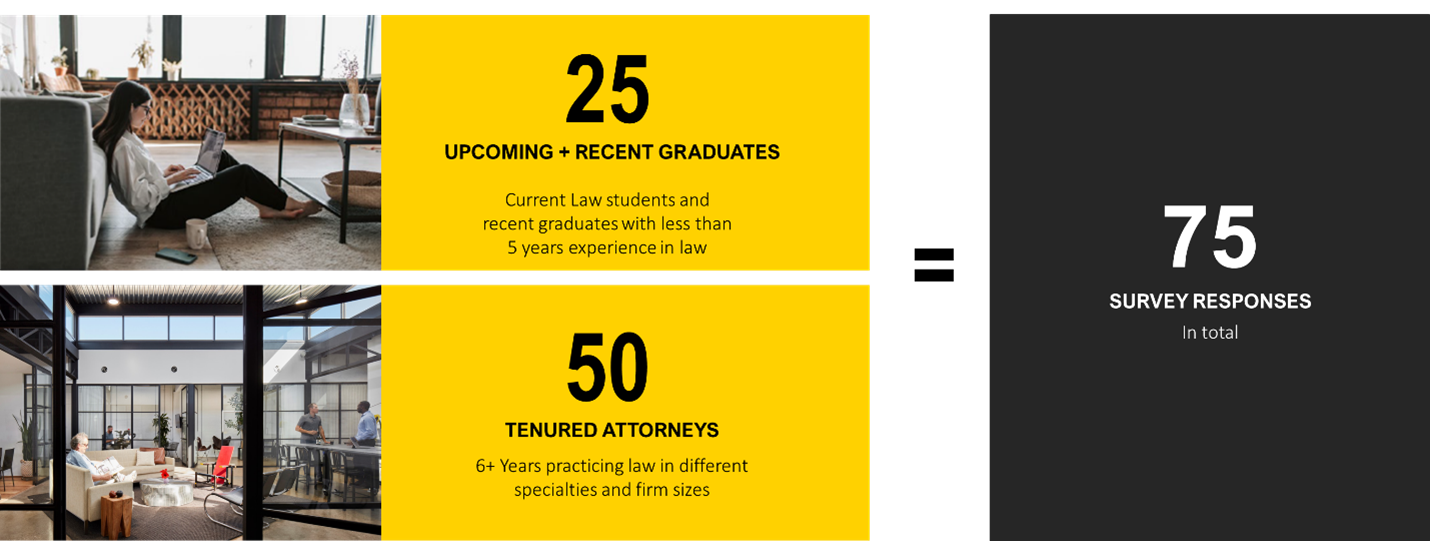
An office-based industry
In a recent study, Savills1 found that Law Firms are leading the way in office attendance, our respondents confirmed that as 76% reported coming into the office three days per week or more and 86% reported coming into the office more often than required by their firm’s attendance policy. Therefore, it’s no surprise that the quality of the office plays an important role in the employee experience and employer value proposition.
Effective connection to get the job done matters more than anything else
Attorneys aren’t asking for flashy amenities; they are focused on getting the most out of their time and location. They want their firm’s office to support easy access to the people and things they need to do their job well. The key to this is supporting the ability to connect with others, both internally and externally. After all, the practice of law is a highly complex profession where it takes an attorney years of mentorship and work experience to develop an expertise. This ability to connect with others is influencing how law firms recruit and shaping their cultures, encouraging mentorship, relationship building and knowledge transfer.

- 80%
of new graduates stated culture and mentorship as number one priority when looking for a firm to join.
- 82%
of tenured attorneys ranked mentorship as important to their organization.

While both tenured attorneys and new graduates value connection, they didn’t express the same priorities. This is likely due to different schedule and location drivers, as the day- to- day expectations vary significantly between the two groups.
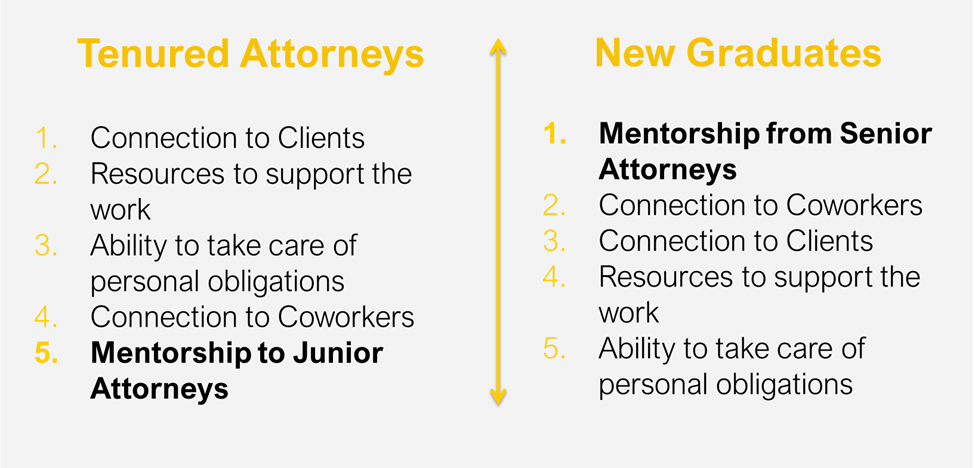
Tenured attorneys and new graduates have different needs, the office should ensure both groups have what they need to be successful. Solutions that cater to both groups:
Spaces and opportunities for impromptu connections and collaboration
Convenient Location and parking to ease the burden of coming into the office
Office layout that supports easy access to senior levels
Access to private space for all employees to support focus and professional video calls
Flexibility is becoming an expectation, not a bonus
While law didn’t experience the same disruption as most industries during the pandemic, the desire for flexibility is a major influencing factor when prospective employees are making decisions about where to work.
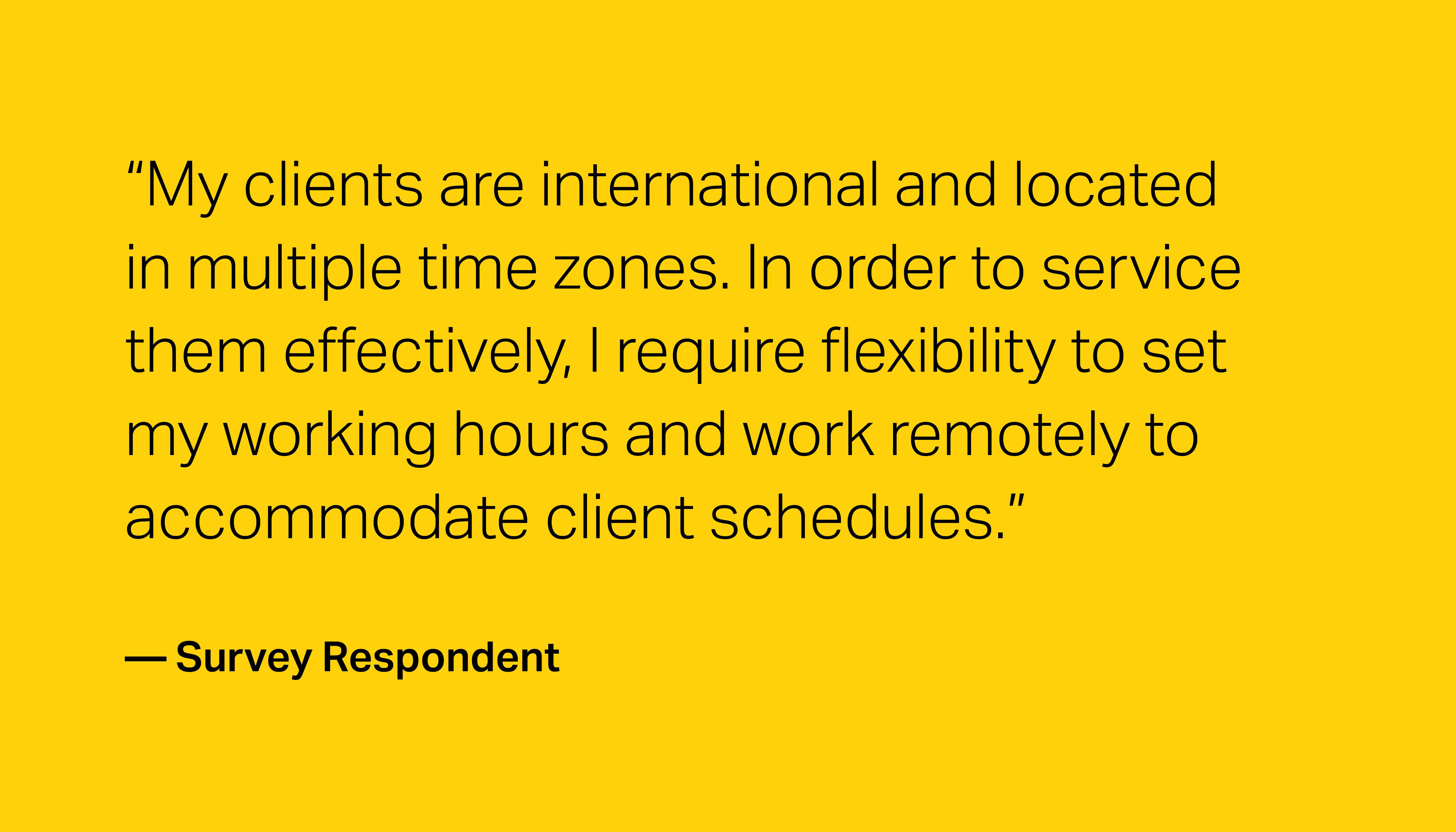
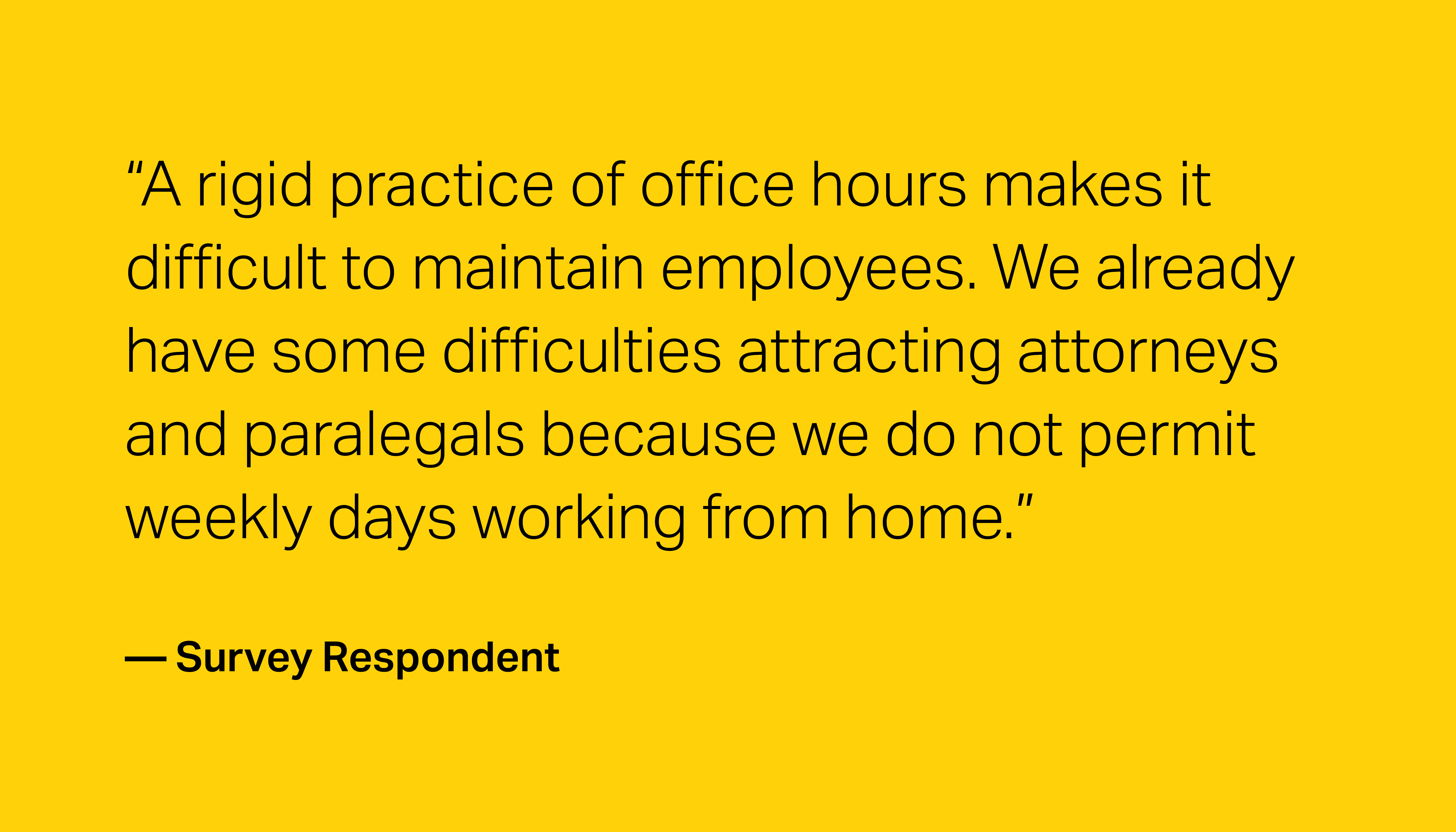
Corgan put this theory to the test with a hypothetical job offer. Tenured attorneys were asked to choose between two hypothetical job offers with contrasting levels of work location flexibility and office assignment policies:
- required full-time office attendance and provided dedicated private office
OR
- flexibility in work location that provided only reservable (rather than assigned offices)
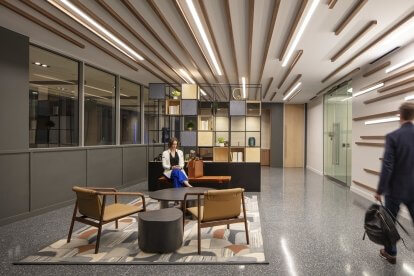
- 67.3%
of tenured attorneys chose the firm that offered flexibility in work location and offered only reservable offices over working in the office full-time in a dedicated office.
Amenities matter, but not the ones you'd think
The amenities that resonated in our study weren’t trendy or elite. We didn’t hear about golf simulators or kombucha on tap. When the billable hour reigns supreme, convenience and function were the drivers behind the top amenities.
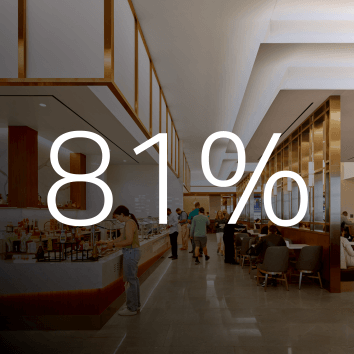
Requested restaurants in proximity
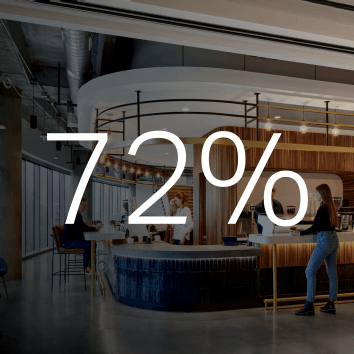
Were interested in coffee shops
With graduates having slightly more interest (82%)

Desired free parking at their office building
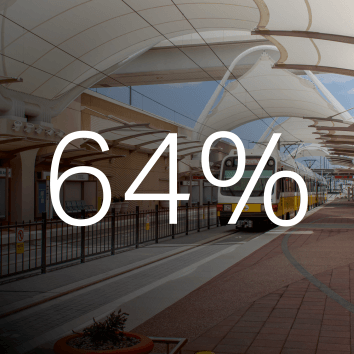
Graduates were interested in access to public transportation
Although it was significantly less popular for tenured attorneys (18%)
Not all law firms want the same things
The era of static needs and cookie cutter law offices is long gone. One size does not fit all as firms adjust for their own cultural needs or to cater to their target clientele. The one thing they all have in common though, is that they consistently need workspace that supports their firm’s specific operations. Therefore, they are experimenting and trying new approaches to find what works best for their firm.
VARIED APPROACHES TO OFFICE ASSIGNMENT
- 31% of respondents from firms noted the companies have implemented unassigned or shared offices at some level.
- 14% of respondents’ firms are still considering unassigned or shared offices.
- 13% of tenured attorneys that responded utilized unassigned offices.
As the needs of law firms become more complex and varied, estimating and planning space needs will not be straightforward or predictable. Further, benchmarking yields a wide range of results in both the types and amount of space needed.
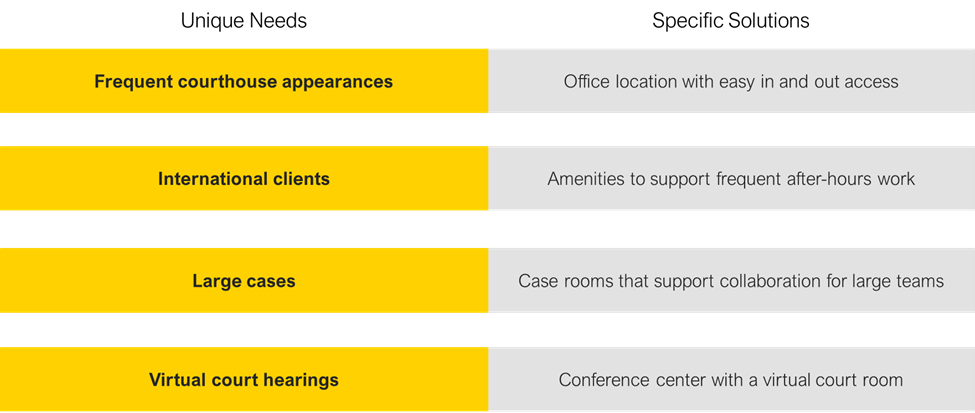
While the needs are evolving and changing, our research is clear that basic functionality, connection, flexibility and customization will be driving forces in the design of law offices.
References
- Savills. (2023). Savills Law Firm Return-to-Office Survey Results. https://www.savills.us/research_articles/256536/348357-0
